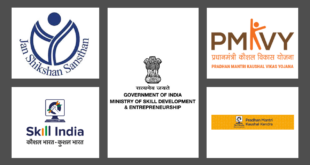- More than three years after the pandemic began, newer variants, an uptick in cases, hospitalisations, and even deaths are being reported from across the world, though a far cry from the earlier alarming levels.
- After Kappa, Delta, BA.2.75, and BA.2.76, the latest variant (first detected in India) is the Omicron recombinant XBB.1.16.
- There has been a very small rise in cases in about a dozen States but no concomitant increase in hospitalisations even among vulnerable groups, suggesting that clinical severity in infected people might not be a concern.
- This variant accounts for over 30% of all sequenced genomes this month, and its proportion has been increasing, clearly marking the variant’s spread and dominance in the community in the last couple of weeks.
- With daily fresh infections at a record low in India for months on end, testing and genome sequencing had dropped sharply; the weekly test positivity rate has been below 1%.
- Hence, the true picture of the variant’s spread is not clear. It is against this backdrop that Prime Minister Narendra Modi directed officials to increase whole genome sequencing to help track the new variant and others that might emerge, so that the country is poised to act on time.
- With the pandemic far from over, the compulsion to continue genome sequencing cannot be overemphasised, lest India flies blind into a pandemic storm.
- With the majority of adults and even adolescents having taken their second dose at least a year ago, and with extremely small numbers opting for a booster, India is fully relying on hybrid immunity arising from vaccination and natural infection for extended protection.
- Fortunately, the estimated 95% of India’s population above 12 years possessing hybrid immunity has been shielding people from serious COVID-19 disease even when a few Omicron variants caused a spike last year.
- In fact, reinfection with any of the variants that emerged after BA.2 might have increased immune protection. A small percentage of people getting reinfected periodically has potentially translated to varying levels of immunity at the population level, leaving only a subset of the susceptible population vulnerable.
- But with people, especially from the vulnerable groups, running the risk of suffering from long-COVID, it is prudent to follow basic precautions such as wearing a mask in closed space settings when newer variants emerge.
- Universal masking even in poorly ventilated places might not be a health priority at this point in time in India, but that should not stop individuals belonging to vulnerable groups from being proactive and guarded.
SOURCE: THE HINDU, THE ECONOMIC TIMES, PIB
 Chinmaya IAS Academy – Current Affairs Chinmaya IAS Academy – Current Affairs
Chinmaya IAS Academy – Current Affairs Chinmaya IAS Academy – Current Affairs

